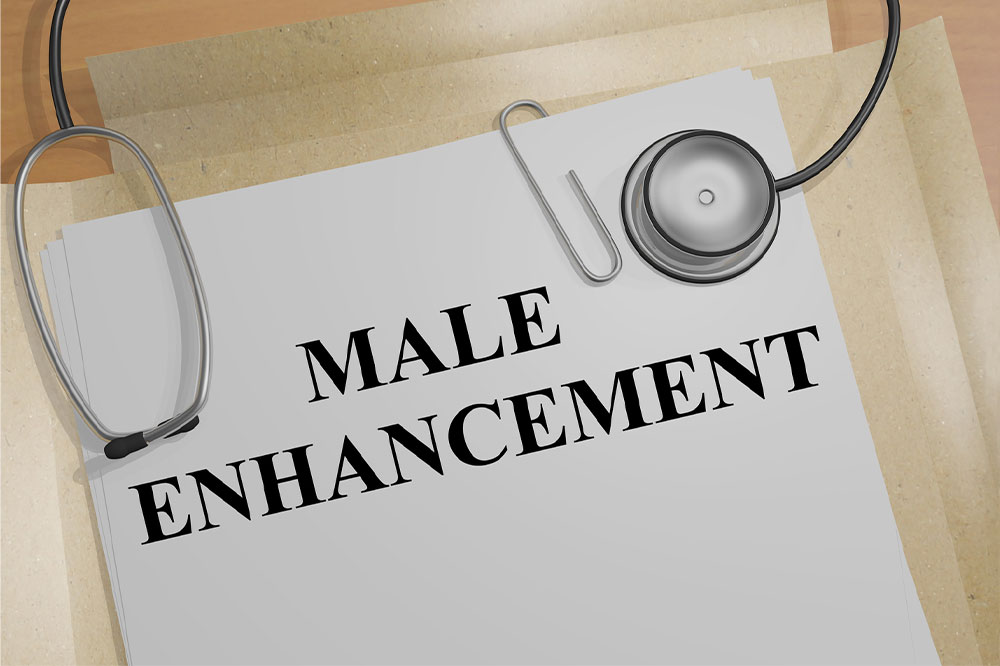Unspoken Sexual Conditions That Could Impact Your Overall Well-Being
This comprehensive article explores lesser-known sexual disorders that can impact physical and mental well-being. From performance anxiety to vaginismus and erectile dysfunction, learn about symptoms, causes, and treatment options for these often overlooked conditions, helping you promote better sexual health and overall wellness.

Unspoken Sexual Conditions That Could Impact Your Overall Well-Being
Maintaining sexual health is a vital aspect of one's overall wellness and quality of life. Regular health assessments, open communication with healthcare providers, practicing safe sex, and staying well-informed about various sexual health issues can significantly enhance personal well-being and relationships. While some sexual health concerns are well-known, many others remain under-recognized yet can substantially affect individuals' mental and physical health. This article explores some of these lesser-known but important sexual conditions, shedding light on their symptoms, causes, and potential treatments.
Understanding Performance Anxiety
Performance anxiety is a common issue that affects many individuals during intimate moments. Despite sexual activity being a natural and pleasurable part of life, anxiety about one's sexual performance can create a barrier to intimacy. This psychological condition often manifests as worry or fear of inadequacy, leading to physical symptoms that interfere with arousal. Stress, self-esteem issues, or past negative experiences can trigger or exacerbate performance anxiety.
For many, this anxiety results in a cycle of concern that hampers sexual enjoyment, leading to frustration and relationship stress. Addressing performance anxiety involves psychological interventions such as cognitive-behavioral therapy, relaxation techniques, and open communication with partners. In some cases, consulting a healthcare professional for further guidance or medication can help restore confidence and ease anxiety, paving the way for more fulfilling intimate experiences.
Orgasmic Difficulties: An Overlooked Challenge
Achieving orgasm is often considered a fundamental aspect of sexual satisfaction, yet research indicates that roughly 10% of women experience orgasmic difficulties regardless of the partner or solo activity. This phenomenon, sometimes termed female orgasmic disorder, can be distressing and impact mental health and intimate relationships. Causes are varied and include physiological, psychological, and emotional factors such as hormonal imbalances, stress, fatigue, or past trauma.
Fortunately, therapy and mindfulness practices have shown promising results in helping women overcome orgasmic challenges. Techniques such as sensate focus, sexual counseling, and medical interventions like hormonal therapy can aid in addressing underlying issues. Recognizing that orgasmic difficulties are common and solvable helps reduce stigma and encourages those affected to seek appropriate care.
Understanding Paraphilia and Its Impact
Paraphilia is a term that refers to persistent and intense sexual interests or fantasies involving objects, scenarios, or activities that are atypical or socially unconventional. While some forms of paraphilia are benign or consensual, others can be problematic or even illegal depending on their nature and impact on individuals or society. Paraphilic behaviors are driven by uncontrollable impulses, which can lead to distress or impairments in daily functioning.
Understanding paraphilia is crucial for recognizing when these behaviors become problematic and require professional intervention. Therapy, including cognitive-behavioral therapy and counseling, can help individuals manage their impulses and develop healthier sexual behaviors. It’s important to approach this condition with sensitivity and without judgment, emphasizing support and treatment options.
Pain During Intercourse: Dyspareunia and Its Causes
Pain experienced during sexual activity, medically known as dyspareunia, affects many individuals and can significantly impair quality of life. This discomfort may involve physical causes such as infections, hormonal changes, or anatomical issues, but psychological factors like anxiety or fear can also contribute. Common physical conditions linked to dyspareunia include vaginismus, infections, or structural abnormalities.
Immediate medical evaluation is advised if persistent pain occurs during intimacy to determine the underlying cause and initiate appropriate treatment. Managing painful intercourse involves physical therapies, medications, counseling, and sometimes surgical procedures. Addressing these issues proactively helps prevent ongoing discomfort and promotes healthy sexual functioning.
Vaginismus: A Spasm-Induced Barrier to Intimacy
Vaginismus is a specific condition where involuntary muscle spasms in the vaginal wall obstruct penetration, often causing significant distress. It can be classified as primary—where the onset is from the very first attempt—or secondary, which develops after previously pain-free sexual activity. Anxiety, fear of pain, or traumatic experiences are common contributors to vaginismus.
Effective treatment options include pelvic floor therapy, counseling, relaxation exercises, and gradual desensitization techniques. Supportive care and open communication with partners increase the chances of overcoming vaginismus, helping women regain confidence and enjoy a fulfilling sex life.
Erectile Dysfunction: More Than Just Age-Related Issues
Erectile dysfunction (ED) is a prevalent concern involving the difficulty to achieve or maintain an erection suitable for sexual activity. Although often associated with aging, ED is a complex condition influenced by physical health, mental health, lifestyle, and relationship factors. Conditions like cardiovascular disease, diabetes, stress, and hormonal imbalances can all contribute to ED.
Despite its challenges, ED is highly treatable, with options ranging from lifestyle modifications to medications such as PDE5 inhibitors, psychological counseling, pelvic exercises, and devices. Men experiencing ED are encouraged to consult healthcare providers for comprehensive evaluation and personalized treatment plans. Addressing ED effectively can improve not only sexual function but also overall confidence and well-being.
In conclusion, being aware of these lesser-known sexual health conditions can empower individuals to seek timely medical advice and appropriate treatment. Promoting open dialogue about these issues reduces stigma and creates an environment where everyone feels comfortable addressing their concerns. Sexual health is an essential aspect of overall wellness; understanding the wide spectrum of potential challenges allows for better management and more fulfilling relationships.





